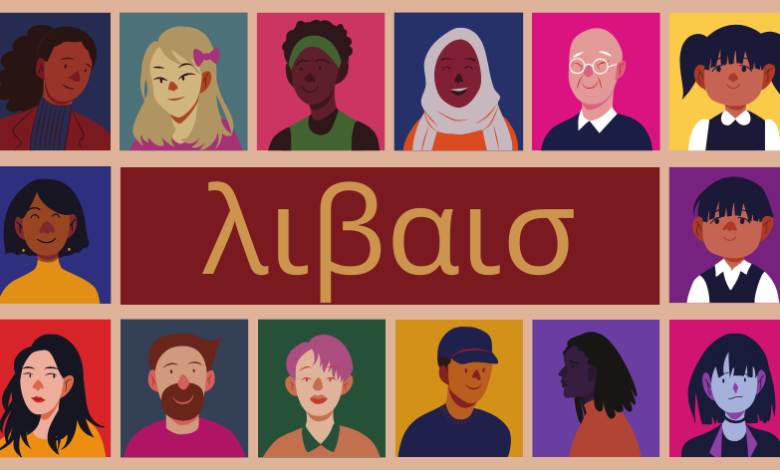Understanding the Concept of “λιβαισ”

“λιβαισ” is a cultural festival celebrated by Muslim communities worldwide. The term “λιβαισ” has its origins in Arabic, where it signifies joy, happiness, and celebration. This festival is deeply rooted in Islamic traditions and holds significant cultural and religious importance for Muslims.
History and Origins
The history of “λιβαισ” dates back centuries, originating from the teachings of Islam and the life of Prophet Muhammad. It is believed to have started during the early days of Islam when the Prophet himself encouraged acts of charity, kindness, and gratitude among his followers. Over time, these teachings evolved into the festival of “λιβαισ,” marked by communal gatherings, feasting, and charitable deeds.
Cultural Significance
“λιβαισ” holds immense cultural significance for Muslim communities around the world. It serves as a time of reflection, gratitude, and spiritual rejuvenation. The festival encourages acts of generosity, compassion, and unity, fostering a sense of community among believers.
Contemporary Relevance
In contemporary times, “λιβαισ” continues to be celebrated with great fervor and enthusiasm. While the essence of the festival remains unchanged, its observance may vary across different regions and communities. However, the core values of charity, gratitude, and compassion remain central to the celebration of “λιβαισ.”
The Influence of “λιβαισ” in Modern Society
The principles of “λιβαισ” have transcended religious boundaries and have been embraced by people of various faiths and cultures. The spirit of giving, kindness, and goodwill promoted during “λιβαισ” resonates with individuals seeking to make a positive impact on society.
Celebrating “λιβαισ”
The celebration of “λιβαισ” typically involves various rituals and traditions, including:
- Charitable Giving: Muslims are encouraged to give to those in need, whether through monetary donations, food distribution, or acts of service.
- Family Gatherings: “λβαισ” is a time for families to come together, share meals, and strengthen bonds.
- Prayer and Reflection: Muslims engage in prayers and supplications, seeking spiritual growth and forgiveness during this auspicious time.
Similar Festivals Around the World
While “λβαισ” is specific to Muslim communities, similar festivals emphasizing charity, gratitude, and community spirit exist in other cultures. For example:
- Thanksgiving: Celebrated in the United States, Thanksgiving is a holiday dedicated to giving thanks and sharing blessings with loved ones.
- Harvest Festivals: Various cultures worldwide celebrate harvest festivals, expressing gratitude for the bounty of the land and sharing with those less fortunate.
Impact on Communities
The observance of “λβαισ” has a profound impact on communities, fostering a spirit of generosity and compassion. Through acts of charity and goodwill, individuals come together to support one another and address the needs of the less fortunate.
Challenges and Controversies
Despite its positive intentions, “λιβαισ” may face challenges and controversies, including:
- Commercialization: In some instances, the commercialization of “λβαισ” may overshadow its spiritual significance, leading to materialistic pursuits rather than acts of charity.
- Cultural Misunderstandings: Misinterpretations of “λβαισ” rituals and traditions may lead to misunderstandings and misrepresentation in the media and society.
Future Outlook
As societies evolve and cultures intermingle, the celebration of “λβαισ” is likely to continue adapting to changing times while preserving its core values. By fostering inclusivity and understanding, “λβαισ” has the potential to promote harmony and unity among diverse communities.
Conclusion
In conclusion, “λιβαισ” is a festival deeply rooted in Islamic traditions, emphasizing charity, gratitude, and community spirit. Despite challenges and controversies, its enduring significance continues to unite people of all backgrounds in acts of kindness and compassion.
FAQs
- What does “λβαισ” symbolize?
- “λιβαισ” symbolizes joy, gratitude, and generosity among Muslim communities worldwide.
- How do people typically celebrate “λβαισ”?
- “λιβαισ” celebrations often involve charitable giving, family gatherings, prayers, and acts of kindness towards others.
- Is “λβαισ” celebrated differently in various regions?
- While the essence of “λιβαισ” remains consistent, its observance may vary across different cultures and regions, reflecting local customs and traditions.
- What are some common misconceptions about “λβαισ”?
- One common misconception is that “λιβαισ” is solely a religious holiday, overlooking its broader cultural significance and universal values of charity and compassion.
- How can one participate in “λβαισ” festivities?
- Individuals can participate in “λιβαισ” festivities by engaging in acts of charity, attending communal prayers, and spending time with family and loved ones.



